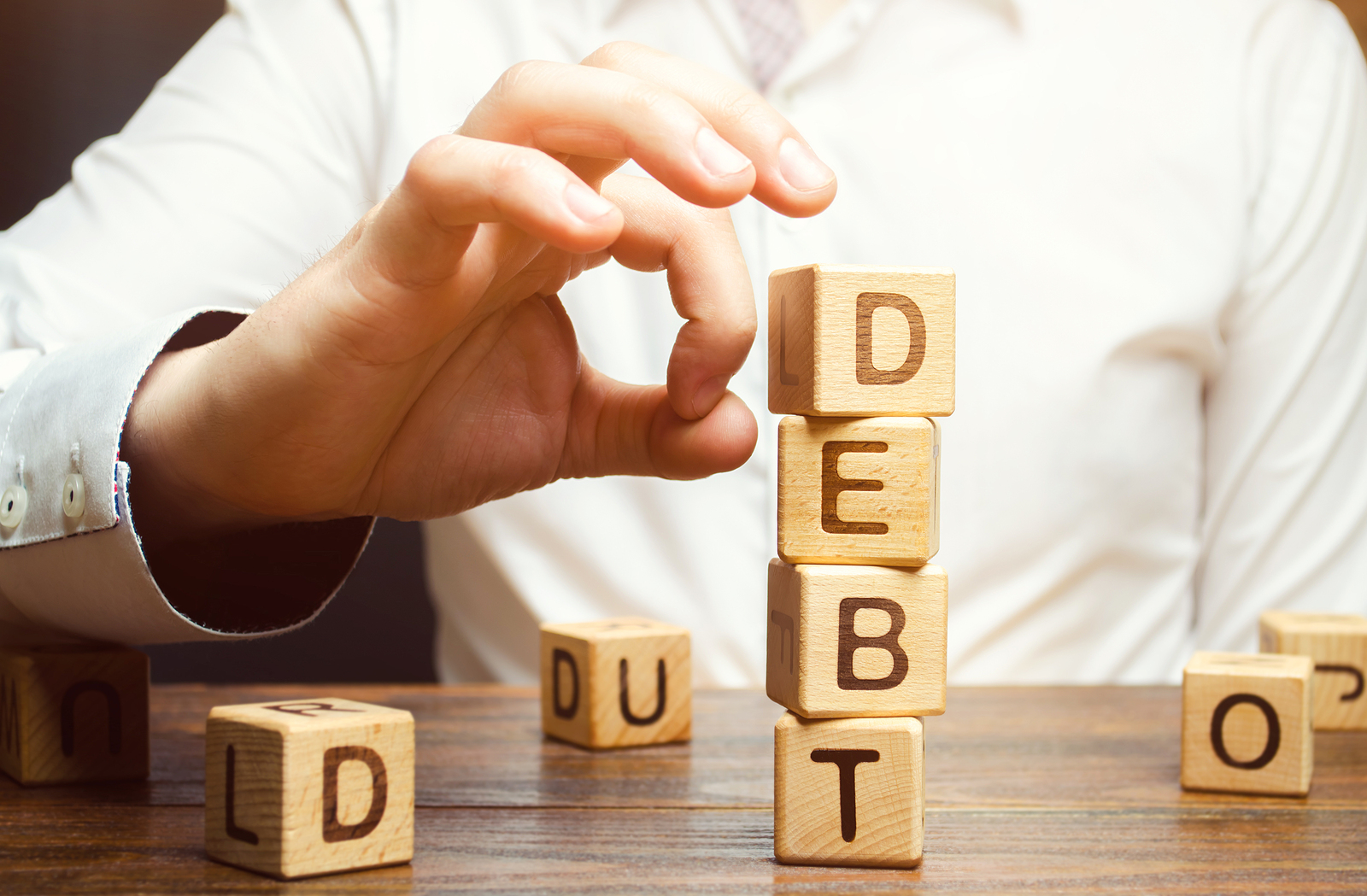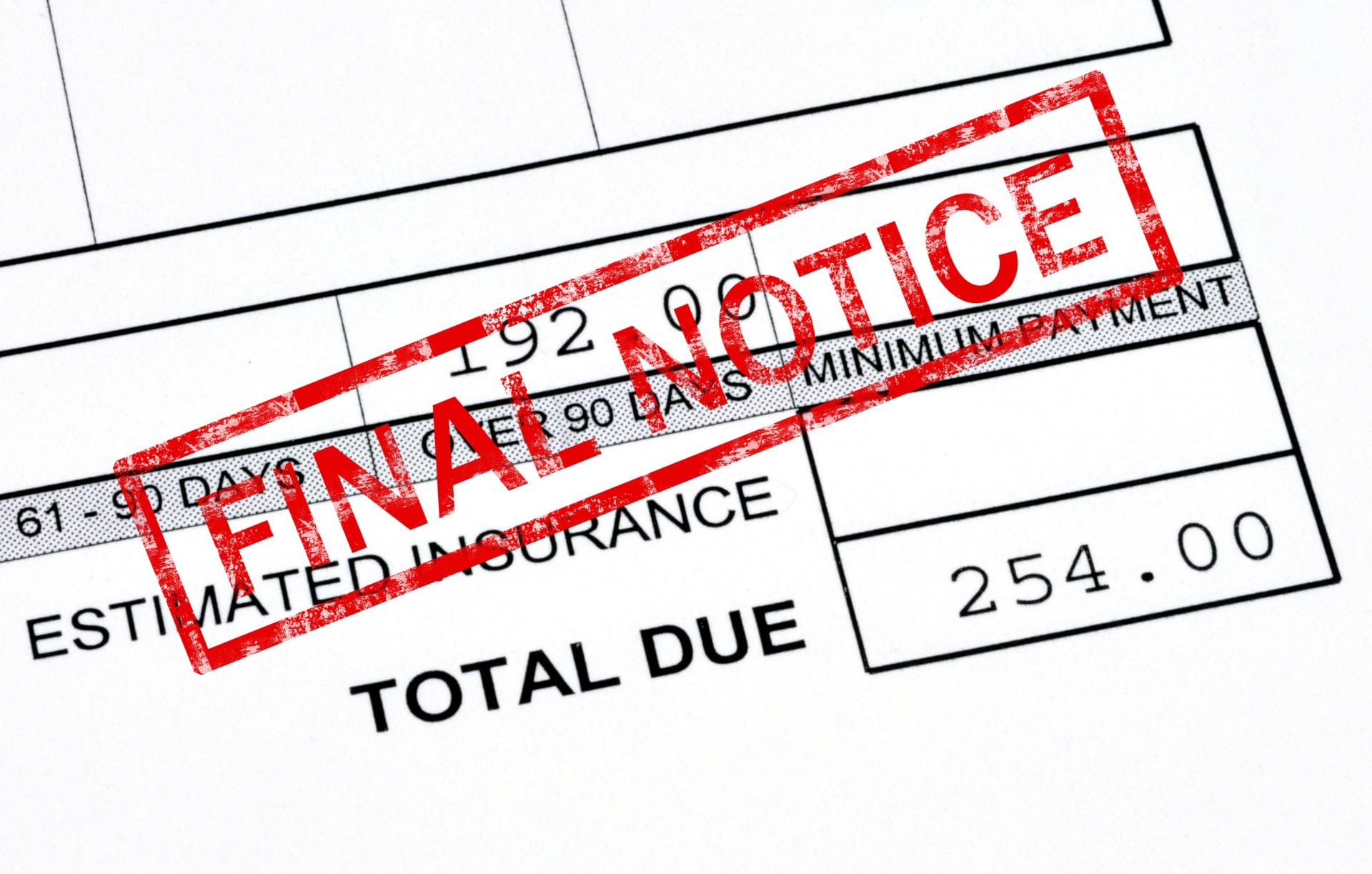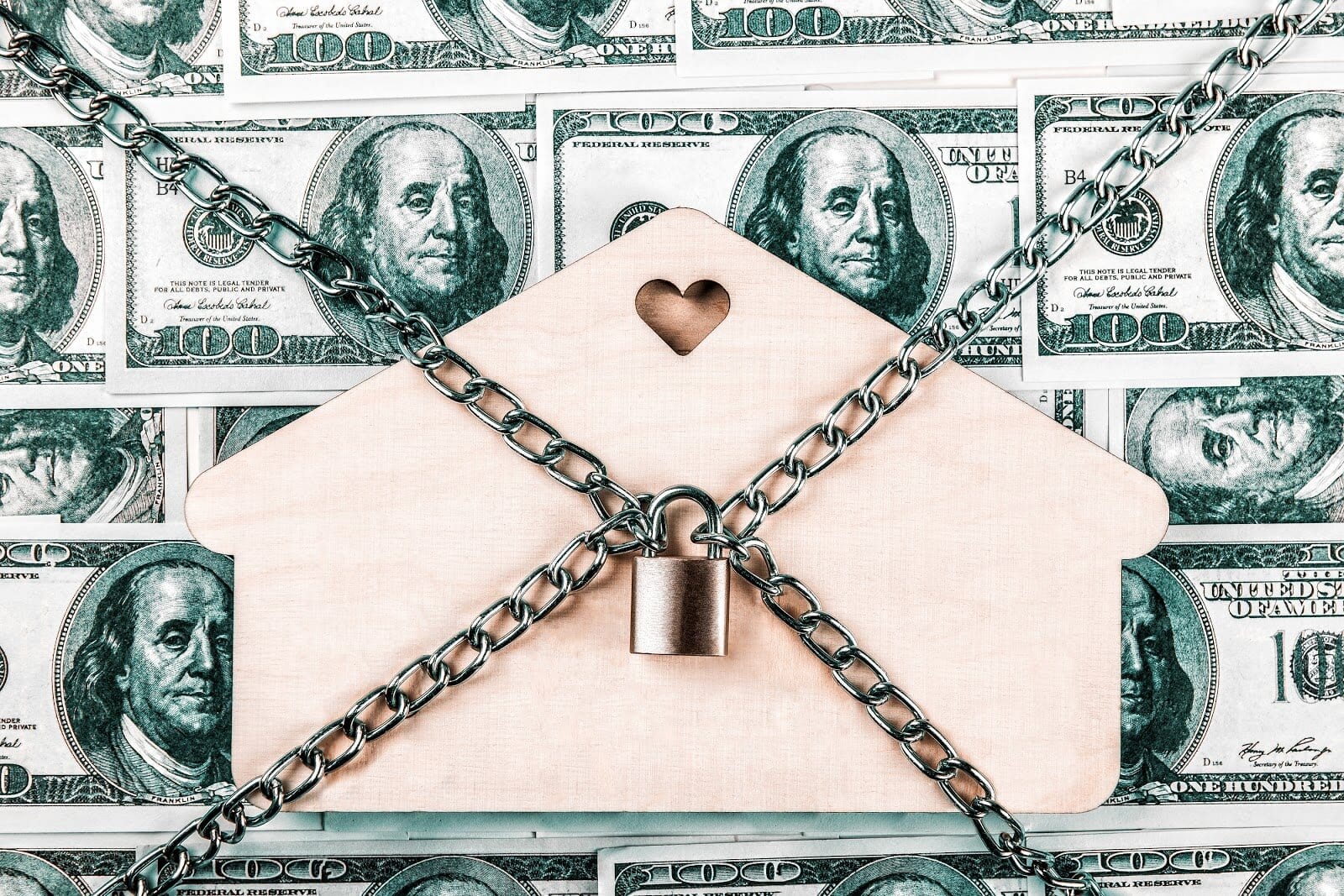While Chapter 7 bankruptcy will allow filers to erase qualifying debt, nondischargeable debts can’t be eliminated by filing for bankruptcy. Qualifying debts include past-due credit card balances, unpaid medical bills, and personal loans, amongst others. The U.S. bankruptcy code won’t forgive debts like student loans, income tax debt, or legal fines. Those are considered nondischargeable debts. We’ve taken the liberty of unraveling the sometimes confusing difference between nondischargeable debt and dischargeable debt.
Nondischargeable Debt Explained
It isn’t uncommon, especially in the midst of an ongoing global health crisis, that households are finding it difficult to make ends meet. If you are one of the thousands of individuals that have lost their job or been furloughed due to COVID-19 and are considering filing for bankruptcy, you should first examine what kind of debt you have to determine whether Chapter 7 bankruptcy is a viable option for you.
Examples of Nondischargeable Debt
Domestic Support
Domestic support payments like child support, spousal support, and alimony all fall under the nondischargeable debt umbrella. These are debts that cannot be forgiven by filing for Chapter 7 bankruptcy since they are considered public policy interests. The general public doesn’t think that a person that is delinquent on child support payments should have protections afforded by filing for Chapter 7 bankruptcy. Consequently, if you have fallen behind on alimony or child support payments and your pages have been garnished, bankruptcy will not stop the wage garnishment.
However, there is some leniency on these particular nondischargeable debts if you file for Chapter 13 bankruptcy. If you are delinquent on your monthly child support or alimony payments, filing for Chapter 13 bankruptcy can help you get current. Chapter 13 bankruptcy will essentially set up a new domestic support payment plan for you to abide by. And if you stay up-to-date on all future payments, then your domestic support debt will be documented as current and/or paid.
Income Tax Debt
As you can imagine, unpaid income taxes are not easily forgiven. Recent income tax debts are considered nondischargeable. But just like domestic support payments, you can use Chapter 13 bankruptcy to help you get current on your nondischargeable income tax debts. There are exceptions regarding Chapter 7 bankruptcy income tax relief.
In some cases, older income tax debts may be eliminated through Chapter 7 bankruptcy proceedings. You would have had to file for Chapter 7 bankruptcy more than 3 years after the delinquent tax return was due, and no more than 2 years after the return was filed. Even if all of the other requirements are met, any back taxes that were incurred within the 240 days before the bankruptcy will be considered nondischargeable.
Another thing to keep in mind, if the IRS can prove tax evasion or tax fraud, then all bets are off and your debt will be labeled as nondischargeable no matter how old they are. If you have considerable tax debt, you may want to contact a professional bankruptcy attorney to help you navigate the complicated waters of bankruptcy as it pertains to unpaid income tax debt.
Student Loan Debt
Student loan forgiveness is a touchy topic for many. Often regarded as the most difficult debt to discharge, student loan debt isn’t forgiven with either Chapter 7 or Chapter 13 cases. However, there are rare instances when a filer is able to get a portion of their student loan debt discharged. The requirements are extremely hard to fulfill though.
If a filer can prove an insurmountable hardship is preventing them from paying their student loan in full, then their case will at least be reviewed. The hardship must prove that your financial situation is dire, that it prevents you from meeting your daily needs, and will continue on indefinitely. Hardships like permanent disability may qualify for student loan debt forgiveness under Chapter 7 bankruptcy relief. If you believe that you meet those requirements, you must also prove you previously made efforts to repay your nondischargeable student loan debt before filing for bankruptcy.
Personal Injury
For obvious reasons, fines and penalties that were a result of breaking the law are nondischargeable debts. If you were found guilty of injuring another, either bodily or by way of property damage, and the court ordered you to pay fines or civil compensation to a victim, you can’t erase that through bankruptcy. Fines from DUI accidents, vehicular manslaughter cases, wrongful death, property damage, and bodily injury all fall under nondischargeable debts.
Examples of Dischargeable Debt
Filing for bankruptcy isn’t an easy decision. While filing for bankruptcy allows you to get a fresh start in life, it isn’t without consequence and shouldn’t be taken lightly. For most Americans, the whole goal of filing for Chapter 7 bankruptcy is so that you can wipe out most debts and take back control of your financial future.
Credit Card Debt
Credit card debt is the most common debt discharged in Chapter 7 bankruptcy. This would be considered a ‘no-asset’ or ‘nonpriority’ claim, meaning there was no collateral that was offered up in lieu of paying that debt. Other loans like home loans, car loans, and small business loans may result in the forfeiture of the properties to pay a portion of the debt off before it is discharged through bankruptcy.
Medical Debt
Medical debt is another common dischargeable debt that can be eliminated in Chapter 7 bankruptcy filings. Researchers found that an estimated 66% of all bankruptcies are linked to medical debt. Each year over 520,000 American families turn to Chapter 7 bankruptcy to help resolve medical debt.
Should You File Bankruptcy If You Have Non-dischargeable Debt?
Everyone’s situation and reasoning for being in debt varies. Your decision to file for bankruptcy to resolve nondischargeable debts will weigh heavily on the details of your case. Your bankruptcy lawyer may suggest you file for Chapter 7 bankruptcy to cancel out unsecured loans and debts that would ultimately free up the money you need to pay off the nondischargeable debts.
Another option, as previously discussed, is Chapter 13 bankruptcy. This could be used as an alternative to reach an agreement with creditors or lending institutions to clear up a portion of your debt. Filing for bankruptcy in any capacity is a complicated process. It is advised that you retain the services of an experienced bankruptcy attorney to help you come to a resolution that suits your specific set of circumstances.
HAVE QUESTIONS ABOUT BANKRUPTCY? CONTACT OAKTREE LAW TODAY!
OakTree Law is open for business during the COVID-19 crisis. If you’re in need of an experienced Los Angeles bankruptcy attorney that can help you find financial relief, and #QuarantineLife has left you in limbo, reach out to OakTree Law now. We’ll help you properly restructure your finances and help you pay down debts. We are here to serve you. Call us at 888-219-0654 for a free phone consultation today!








